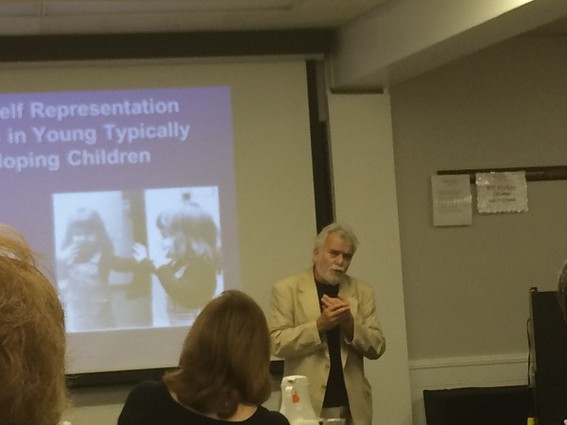Startup and App Roundup: Vognition and WebTeam

Vognition: Vognition, the Oakland-based startup that developed voice controls for home automation systems, has completed a successful customer trial involving more than 300 users.
The company, which came out of the NJIT-EDC (Newark), won the Best App award at the New Jersey Tech Council’s Internet of Things conference in May.
Chief Marketing Officer Pavita Howe gave NJTechWeekly.com an idea of what the company had learned from the trial.
- Customers want to use additional features. By the time of the trial, Vognition had integrated voice controls for lights, locks and thermostats, but almost 25 percent of the trial participants were using the commands for garage doors. Vognition had been working on that capability, and was able to add it to the product quickly. It is now incorporating additional features, such as easy access to the app, indoor and outdoor cameras, pool PH meters, water valves, automated blinds and commands for other devices and appliances around the house.
- People want to be able to use voice commands with whatever device is available. Whether it’s for an iPhone, an Android phone, a wearable or an Amazon Echo, there is a preference for voice commands. Google, Apple and Amazon have closed systems. If you want to talk to devices through Apple HomeKit, for example, your data will have to reside in Apple iCloud. “As the adoption of Apple HomeKit, Google Now and new platforms like smart watches and smart speakers — such as Amazon Echo — increases, consumers expect to use any of these options to control their home automation systems via voice commands,” said Howe.
“We are working on a solution that will integrate all of these and provide multi-vendor support, so that you can use your iPhone this time, and your spouse can use an Android phone, and if you have an Amazon Echo sitting in your house, you can use that, too,” she added. All voice commands come back through Vognition; then the device completes the action required and replies back to the user that the request was received and has been acted on successfully.
- People wanted to know why they couldn’t just talk to Siri and tell it what to do. Siri might not know that the garage door was already open, but “Vognition’s smart controls will be able to tell you that it is open,” Howe explained. “We know the state that the devices are in.”
- Customers wanted to see security considerations integrated into the product. If customers are using Amazon Echo, there is a danger that if a window were open, someone could just poke his head in and tell Echo to unlock the front door. Vognition’s smart product design accounts for these types of situations.

WebTeam: On September 16, NJ Tech Weekly attended the “Innovation for Autism Management” event at the Rutgers University Inn and Conference Center, in New Brunswick, where Nish Parikh, CEO of Somerset-based WebTeam, spoke about the EARLYThree screening device for autism.
The fundamental assumptions behind the app are based on the work of Dr. Michael Lewis, of Rutgers’ Robert Wood Johnson Medical School, and on the work of others in the field culled by Lewis and a research associate.
Lewis also spoke at the event. In one of the experiments he described, a child is playing with his mother, who puts rouge on the child’s nose. Lewis then has the mother and child stand in front of a mirror. In the case of normal development, prior to 15 months no child points to his nose and says, “I have rouge on my nose.” After 15 months, however, they recognize themselves with the rouge each time. But you can’t teach children to do this before they are ready, Lewis said. By 24 months, every child that is developing normally will either touch his nose or make a comment about it.

At the age of one, a child will pick up an object and pretend with that object by himself. By two years of age, another form of pretend play will have developed: A child will pretend with an object in a more active manner, animatedly feeding a doll, for instance, creating a pretend interaction. But this type of pretend play is often absent in children diagnosed with autism.
“We want to see if we can get parents to be the experimenters,” said Lewis. In essence, the app asks the parents to put rouge on their child’s nose and see what happens. WebTeam developed a set of screening criteria that seem to be accurate, and put them into a device that is user-friendly for parents, he explained. The parents get information and an initial score, which tells them whether or not they should talk to their pediatrician.
Nish Parikh said that the app, which he had been working on for two years, asks certain questions of the parents according to the age of their child (up to 36 months). “Based on the expectations by the experts, certain parameters are captured in videos or pictures that can be shared. We are reducing the risk of mom saying, ‘Yes, Johnny can do this,’ and dad saying ‘I haven’t seen it.’”
Every year, 4 million children in the country are diagnosed with autism, and Parikh wants to find a way to let every single child be screened. “If we can get this tool to every parent, and share this precise information with the experts who are actually giving the actual diagnosis, that will be a huge value to the whole society,” he said.
With Lewis’ expertise, “we have developed an algorithm based on key parameters, expectations and the child’s age,” said Parikh. “At the end of the process, we are showing early indications.”
He cautioned that EARLYThree does not provide a diagnosis. It’s a screening tool that parents can use. He added that the app can be updated as more is learned about autism through additional research.
WebTeam is an offshoot of Rangam Consultants (Somerset), a company specializing in professional staffing services. WebTeam was incorporated in 2005 to design, develop and promote technologies for education and distance learning and training.

